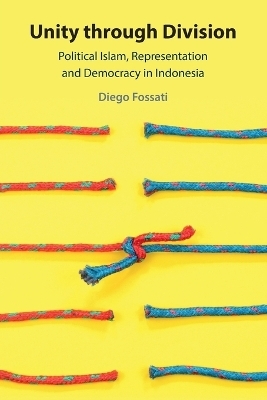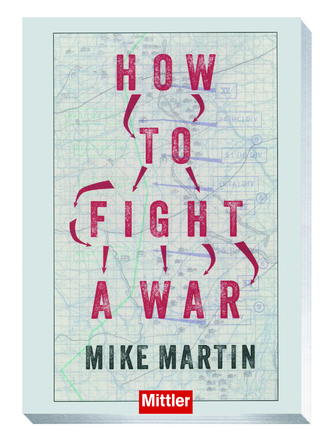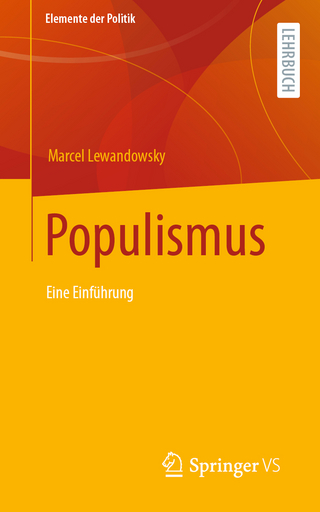
Unity through Division
Political Islam, Representation and Democracy in Indonesia
Seiten
2024
Cambridge University Press (Verlag)
978-1-009-20306-7 (ISBN)
Cambridge University Press (Verlag)
978-1-009-20306-7 (ISBN)
This book studies a puzzle observed in contemporary Indonesian politics: while the quality of democracy in Indonesia has deteriorated in recent years, public satisfaction with democracy has increased. To explain this development, the book studies ideological representation, an aspect of Indonesian democracy that is often overlooked.
Indonesia, like many other countries around the world, is currently experiencing the process of democratic backsliding, marked by a toxic mix of religious sectarianism, polarization, and executive overreach. Despite this trend, Indonesians have become more, rather than less, satisfied with their country's democratic practice. What accounts for this puzzle? Unity Through Division examines an overlooked aspect of democracy in Indonesia: political representation. In this country, an ideological cleavage between pluralism and Islamism has long characterized political competition. This cleavage, while divisive, has been a strength of Indonesia's democracy, giving meaning to political participation and allowing a degree of representation not often observed in young democracies. While the recent resurgence of radical Islam and political polarization in Indonesian politics may have contributed to democratic erosion, these factors have simultaneously clarified political alternatives and improved perceptions of representation, in turn bolstering democratic participation and satisfaction. This compelling book effectively challenges the wisdom of the role of Islam in Indonesian political life and provides a fresh analysis for debates on democratic backsliding in Indonesia and beyond.
Indonesia, like many other countries around the world, is currently experiencing the process of democratic backsliding, marked by a toxic mix of religious sectarianism, polarization, and executive overreach. Despite this trend, Indonesians have become more, rather than less, satisfied with their country's democratic practice. What accounts for this puzzle? Unity Through Division examines an overlooked aspect of democracy in Indonesia: political representation. In this country, an ideological cleavage between pluralism and Islamism has long characterized political competition. This cleavage, while divisive, has been a strength of Indonesia's democracy, giving meaning to political participation and allowing a degree of representation not often observed in young democracies. While the recent resurgence of radical Islam and political polarization in Indonesian politics may have contributed to democratic erosion, these factors have simultaneously clarified political alternatives and improved perceptions of representation, in turn bolstering democratic participation and satisfaction. This compelling book effectively challenges the wisdom of the role of Islam in Indonesian political life and provides a fresh analysis for debates on democratic backsliding in Indonesia and beyond.
Diego Fossati is Assistant Professor in the Department of Public and International Affairs at City University of Hong Kong. Dr. Fossati studies political behaviour, accountability and representation, especially in the context of Southeast Asia.
1. Introduction; 2. Explaining democratic survival in Indonesia; 3. The ideological roots of electoral politics; 4. Political elites and ideological competition; 5. Public opinion on political Islam; 6. Ideological representation; 7. Meaning and evaluation of democracy; 8. Conclusion.
| Erscheinungsdatum | 29.03.2024 |
|---|---|
| Zusatzinfo | Worked examples or Exercises |
| Verlagsort | Cambridge |
| Sprache | englisch |
| Maße | 152 x 229 mm |
| Gewicht | 398 g |
| Themenwelt | Geisteswissenschaften ► Religion / Theologie |
| Sozialwissenschaften ► Politik / Verwaltung ► Vergleichende Politikwissenschaften | |
| ISBN-10 | 1-009-20306-1 / 1009203061 |
| ISBN-13 | 978-1-009-20306-7 / 9781009203067 |
| Zustand | Neuware |
| Haben Sie eine Frage zum Produkt? |
Mehr entdecken
aus dem Bereich
aus dem Bereich
Geschichte, Parteistruktur, Radikalisierung
Buch | Softcover (2024)
UTB (Verlag)
27,90 €


